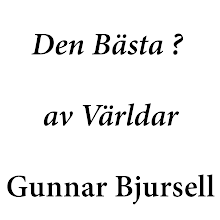The film Nostalghia by Andrei Tarkovskij is a beautiful, mysterious, enigmatic movie - a piece of art, in my opinion. I share this fascination with other cineasts/cinephiles of course.
To some extent obvious(?) in Tarkovskij's films is his fascination for the Eastern Orthodox Church and its traditions, not least the mysticism.
The latter aspect so often displayed when he tried to explain - to him - obvious signs of God's precense when directing his actors.
I remember Erland Josephson, once telling a journalist that during the shooting of 'Offret'/'The Sacrifice' ('Le Sacrifice'), Tarkovskij had found "the exact point" in a stone wall where he wanted Josephson to stay during a shooting of a scene. Josephson had asked Tarkovskij why he wanted to position him at that exact spot. Tarkovskij had looked totally inappreciative, asking: "Don't you see why? It's so obvious!", afterwards trying to explain. Josephson had not understood why.
In 'Zerkalo' ('The Mirror'/'Le Miroir'), Tarkovskij saw the movements in the grass caused by the wind as a sign of "God walking in the meadows".
Sometimes it's however difficult to know if he always reveres the ecclestiastical side of the tradition or if he is somewhat critical towards some of its - in my opinion - exaggerated elements and more adhere to the purely mystical side of the religion without the institutional superstructure?
Watch his œuvres and judge for yourself!
The latter aspect so often displayed when he tried to explain - to him - obvious signs of God's precense when directing his actors.
I remember Erland Josephson, once telling a journalist that during the shooting of 'Offret'/'The Sacrifice' ('Le Sacrifice'), Tarkovskij had found "the exact point" in a stone wall where he wanted Josephson to stay during a shooting of a scene. Josephson had asked Tarkovskij why he wanted to position him at that exact spot. Tarkovskij had looked totally inappreciative, asking: "Don't you see why? It's so obvious!", afterwards trying to explain. Josephson had not understood why.
In 'Zerkalo' ('The Mirror'/'Le Miroir'), Tarkovskij saw the movements in the grass caused by the wind as a sign of "God walking in the meadows".
Sometimes it's however difficult to know if he always reveres the ecclestiastical side of the tradition or if he is somewhat critical towards some of its - in my opinion - exaggerated elements and more adhere to the purely mystical side of the religion without the institutional superstructure?
Watch his œuvres and judge for yourself!

0 commentaires:
Skicka en kommentar